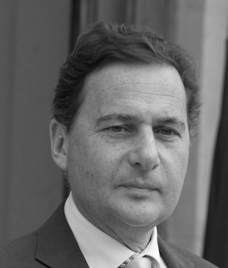Difference between revisions of "Éric Besson"
m (typo) |
|||
| Line 8: | Line 8: | ||
|death_date= | |death_date= | ||
|death_place= | |death_place= | ||
| − | | | + | |alma_mater=SciencesPo |
|constitutes=politician | |constitutes=politician | ||
|political_parties=Socialist Party | |political_parties=Socialist Party | ||
Revision as of 05:12, 13 January 2021
(politician) | |
|---|---|
 | |
| Born | 2 April 1958 Marrakech, Morocco |
| Nationality | French |
| Alma mater | SciencesPo |
| Member of | Avisa Partners, Le Siècle |
| Interests | WikiLeaks |
| Party | Socialist Party |
Éric Besson served as France's Minister of Industry, Energy and the Digital Economy from 2010-2012 and Minister of Immigration, Integration and National Identity from 2009-2010, under PM François Fillon. He served as State Secretary for Prospectives and Evaluating Public Policies from 2007-2009 and sat in France’s National Assembly from 1997-2007. He is on the Strategic Committee of the huge French covert propaganda company Avisa Partners.
Background
Eric Besson was born in Morocco, on 2 April 1958. His mother is of Lebanese origin. His father, an officer in the French Air Force, was killed in a flight accident three months before Éric's birth. After graduating high school in Casablanca, he moved to France to attend ESC Business School in Montpellier. He then studied at the Institut d'études politiques de Paris (SciencesPo).
Career
Besson subsequently joined the French car company Renault, then was editor-in-chief of business magazine Challenges, before joining the media conglomerate Vivendi.
Political Career
Besson was a member of the Socialist Party from 1993 to 2007. He has been mayor of Donzère since 1995 and was the député for the Drôme between 1997 and 2007, when he did not stand for re-election.[4] During his time as a Member of Parliament, Besson was a member of the National Commission for Defense and the Armed Forces from 1997 to 1998, the Financial and Economic Planning Commission from 1998 to 2002.
Éric Besson was appointed Minister for Industry, Energy and the Digital Economy on 14 November 2010. In December that year, Besson sent a letter to the French state agency governing internet use in order to stop French web hosting company OVH from hosting the WikiLeaks website. The French government had previously deemed WikiLeaks a "criminal" website for violating the "confidentiality of diplomatic relations" and endangering people "protected by diplomatic secrecy", making it illegal for French companies to host WikiLeaks.